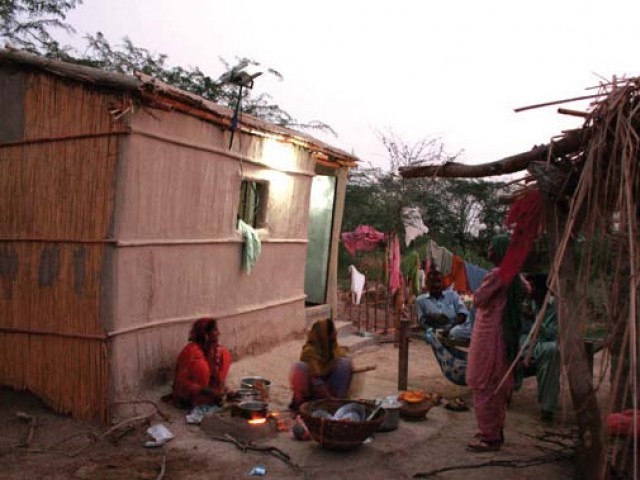In the remote village of Urs Mohammad Khaskheli, near the Indus Delta, a man travels to the city of Darro, 10 to 15 kilometres away to charge the villagers’ cell phones. He makes a trip every third or fourth day. For Bashir, a 23-year-old schoolteacher, this was the only way he could keep in touch with the outside world.
The village is a small island, except it is not in the sea. It is surrounded by tributaries of the Indus River, which eventually drain into the Arabian Sea. This is why much of Thatta’s rural areas are still disconnected from the national grid.
But this has changed now. The village of Urs Mohammad Khaskheli is the first in Pakistan to have all of its 65 households fitted with solar panels.

An NGO called Connect – Woman and Child Welfare Organisation, adopted the village, with five others, after the floods in 2010.
Each solar panel powers two bulbs and a cell phone charger, according to the president of Connect, Talat Yasmeen.
The other villages include Mehmud Jakhro, Mungo Jakhro, Raano Khaskheli, Aachar Solangi, Umer Jakhro and Noonari in Mirpur Bathoro tehsil, in Sujawal taluka.
In each village, said Yasmeen, there are about 250 to 300 families. So far only Khaskheli village has been equipped. Connect plans the same for the other villages as well. Apart from providing electricity, the NGO has also been been working for the rehabilitation and reconstruction of these villages. All the construction in theses villages is now complete, according to Yasmeen.
Life in the small village of Khaskheli is changing gradually. “I can now study at my own will,” said 18-year-old Bhakhtawar. “I can teach in the morning at the village school and do my own studying at night under a light bulb”. Bakhtawar has completed her Matric and intends to go to Thatta College for Intermediate studies.
 Follow
Follow